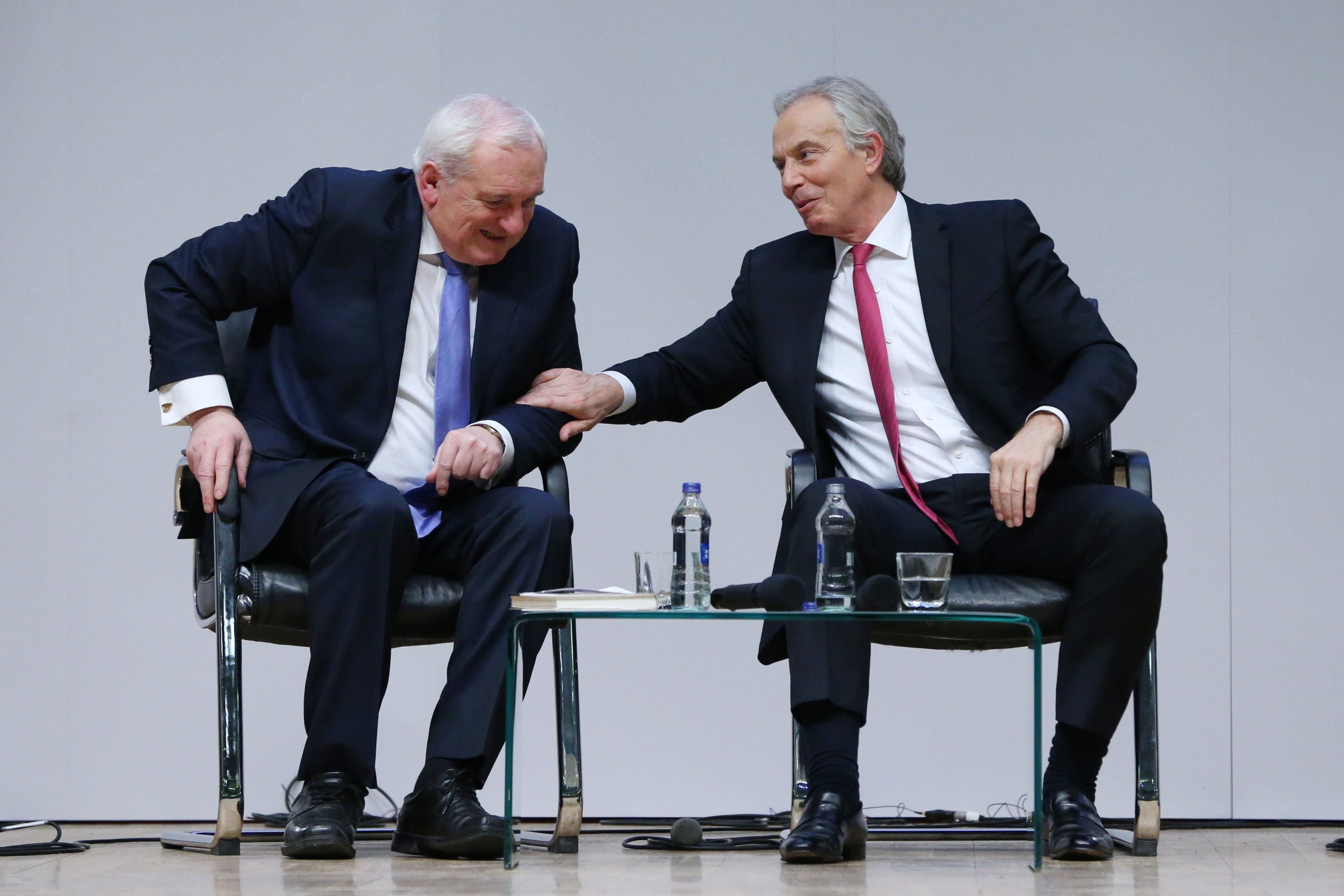
The Belfast Agreement has survived almost 25 years despite objections to some parts of it, Northern Ireland’s former First Minister has said.
The peace agreement brokered in 1998 saw the establishment of the powersharing Assembly at Stormont which remains in place today despite being unable to fully function in a stalemate over the Brexit Protocol.
Lord Trimble’s role in the negotiation of the 1998 deal led to him being awarded, along with then SDLP leader John Hume, the Nobel Peace Prize.
He reflected on the agreement at the Queen’s University on Monday evening as he attended the unveiling of a new portrait of him.
The event included video messages from ex-Prime Minister Tony Blair and former US President Bill Clinton.
The artwork by Colin Davidson will hang in the university’s Great Hall alongside other notable alumni such as Seamus Heaney, Mary McAleese and former Chancellor Senator George Mitchell.
Lord Trimble graduated from Queen’s in 1968 and pursued an academic career in the law faculty before becoming Ulster Unionist leader and playing a leading role in negotiating the agreement.
He told the PA news agency: “The Good Friday Agreement is something which everybody in Northern Ireland has been able to agree with, it doesn’t mean they agree with everything, there are aspects which some people thought were a mistake, but the basic thing is that this was agreed.
“That is there. People are actually not throwing the agreement to pieces, their complaints are still based on the existence of the agreement. They are not saying ‘throw it out’, so that’s the thing to bear in mind.”
The Assembly is currently unable to fully function, with the DUP refusing to nominate ministers until the UK government takes action over the Northern Ireland Protocol.
Unionists oppose the protocol, which sees Northern Ireland expected to enforce EU customs laws to avoid the imposition of a land border on the island of Ireland.
Lord Trimble described a “simple solution”.
“Northern Ireland is part of the United Kingdom, therefore the United Kingdom should keep Northern Ireland,” he said.
“What we have at the moment is something where the United Kingdom is not keeping Northern Ireland.”
He criticised as “indefensible” that the people of Northern Ireland have no say in the protocol arrangements.

Former Irish premier Bertie Ahern was among guests who attended Riddel Hall for the portrait unveiling.
He paid tribute to Lord Trimble, saying he had great admiration for him, although admitting “we would argue black was white at times”.
“At the same time we worked together to implement the agreement, to try to make sure there was a better future for the people here,” he said.
“I think he was a brave man, he never blinked. He was under tremendous pressure for many months … he saw at that stage the opportunity for real peace and real institutions.”
Mr Ahern compared the current situation with then, saying while then there were tough negotiations, “there don’t seem to be any negotiations”.
“That’s the sad bit,” he said. “(The current issues) are not insurmountable, the only way of sorting out problems in political life is negotiation, it’s face to face negotiation like we had here 25 years ago – if you’re waiting around for someone to love the line you were taking then you were in the wrong business.
“Hopefully the current population of politicians will one day wake up and say that negotiating is a better way than arguing.”
In some ways we wouldn't have that same peace in this place without people like him— Colin Davidson
Mr Davidson said having grown up in Northern Ireland he watched Lord Trimble as a key player at “a very critical time in our history”.
“I was very aware that I had the responsibility as an artist in painting somebody who was very instrumental in getting us to where we are now,” he said.
“Very instrumental in brokering peace and so whenever names like Bill Clinton, George Mitchell, Tony Blair, John Hume and Bertie Ahern are mentioned, David Trimble is right in there as well.
“In some ways we wouldn’t have that same peace in this place without people like him.”
Lady Trimble voiced her admiration for the portrait, saying it had caught her husband in a moment of reflection.
Queen’s vice-chancellor Professor Ian Greer said, given Lord Trimble’s academic and political careers: “It is fitting that we recognise him in this appropriate manner.”







